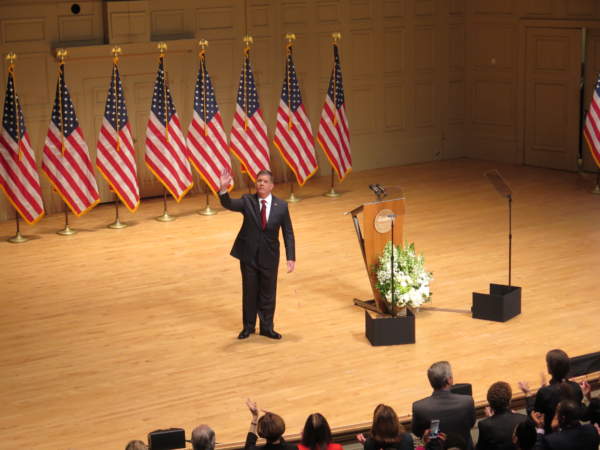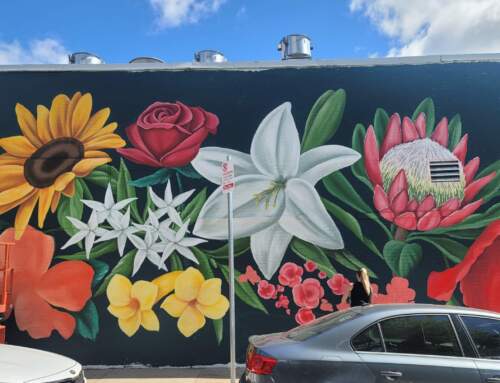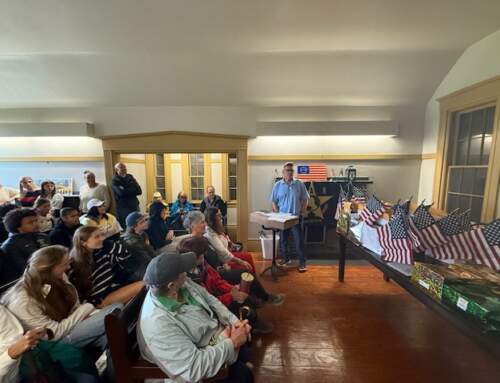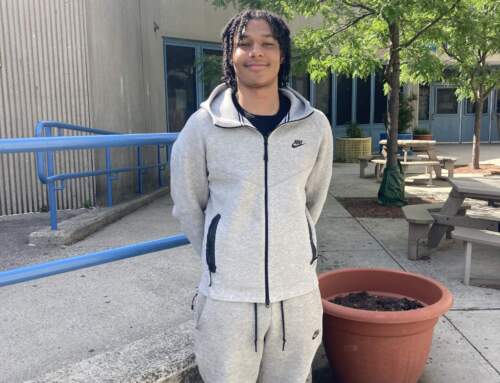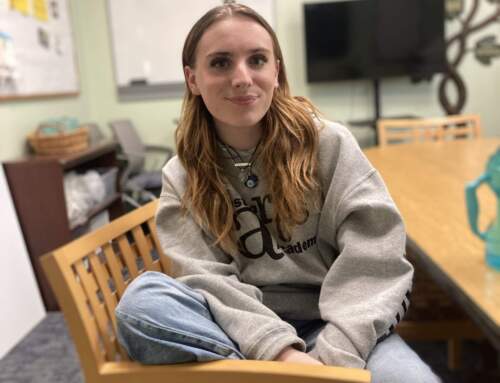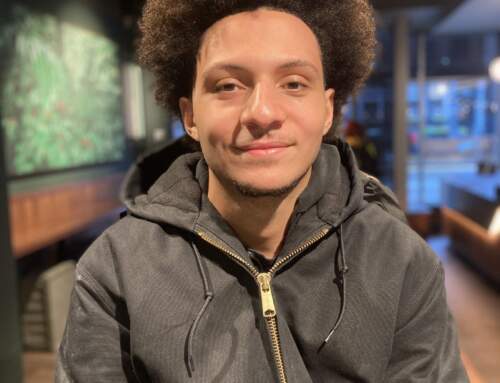by Rick Winterson
Last Tuesday, two evenings ago on January 15, Boston’s Mayor Martin J. Walsh delivered his 2018-2019 “State of the City” address. It was the fourth annual such presentation by Walsh, in which the Mayor described two visions of his administration – the vision based upon past achievements, and the vision he and his team foresee in the City of Boston’s future.
As it has in years past, this event was held in Symphony Hall. The Orchestra and First Balcony seats were filled by the estimated crowd of some 2,000 attendees. The evening had a definite festive tone to it; the extensive program included many local performing artists, who began their performances at 6:15.
Mark Volpe, the Boston Symphony Orchestra’s President and CEO delivered welcoming remarks. A blessing called down by four inter- denominational clerics preceded the Mayor’s address. The American colors were presented and the Anthem sung. Interestingly, the scriptural quotes used in the blessing included “an awesome city” and “a city of shepherds”. CEO Volpe spoke of how fitting it was to gather in Symphony Hall in its 119th year: “This Hall should be used by all,” he stated.
Promptly at 7:30, Mayor Walsh took the Symphony Hall stage. Quite fittingly, the Mayor began his remarks by saluting his friends and family members, concluding with the simple but meaningful sentiment, “I love you.” He warmly thanked the City of Boston employees for their past and future services, and then recognized Boston’s recent championship sports teams and their athletes.
Walsh then touched briefly but effectively on a number of key points about our City: He referred to diversity, including LGBTQ residents and groups in Boston. He was specific in terms of people of color – Steven Tomkins (Suffolk County Sheriff), Rachel Rollins (Suffolk D.A.), William Gross (BPD Commissioner), and Ayanna Pressley (U.S. Representative from Boston). Walsh also announced plans for a King Memorial on Boston Common.
The Mayor went on to speak of affordable housing – one of the topics that the media had predicted he would address. He also spoke of addiction. Progress is being made, but there’s a long way to go. The economic well-being of Boston isn’t an unmixed blessing, but at least Boston has a firm policy for resolving these issues. The Mayor also spoke of infrastructure, listing schools, libraries, and roadways as the beneficiaries of Boston’s rebuilding programs. He concluded those remarks with a ringing statement, “Instead of building walls, let’s build bridges!” – the reference is obvious.
The undoubted economic strength of Boston was also a major topic of the Mayor. He mentioned two key factoids in support of this claim. Boston’s current unemployment figure is a low, low 2.4% – the lowest ever recorded. In addition, Boston is now the best place in the world to find a job – yes, that’s “Best in the world”!
The Mayor closed his address on a (very) high note. He made several loudly voiced statements about the City’s progress, concluding each one with “Look to Boston”. As he narrated these points, the audience came to its feet in a spontaneous standing ovation, applauding each antiphonal “Look to Boston. Look to Boston. Look to Boston … “ It was quite a stem-winding set of closing statements, which Mayor Walsh concluded precisely at 8 p.m. Afterward, the Mayor mingled with his associates at the foot of the Symphony Hall stage.
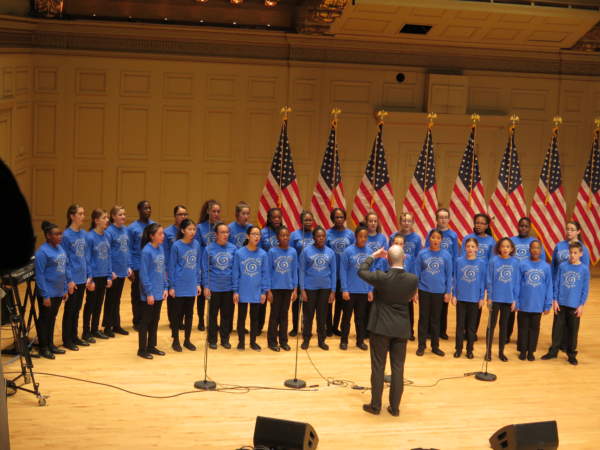
The Boston City Singers perform.
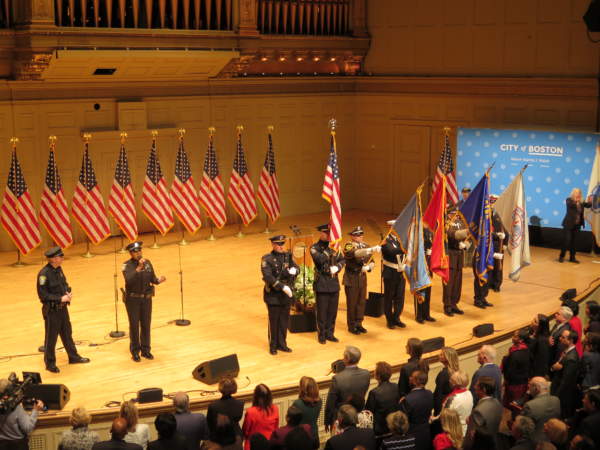
The colors are presented; the Anthem is sung.
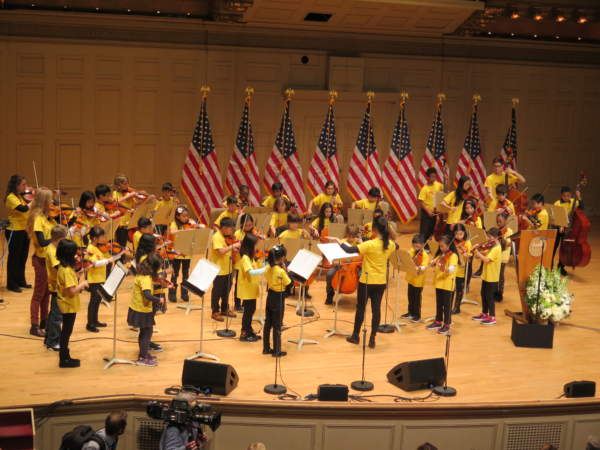
The Josiah Quincy School Orchestras entertains.
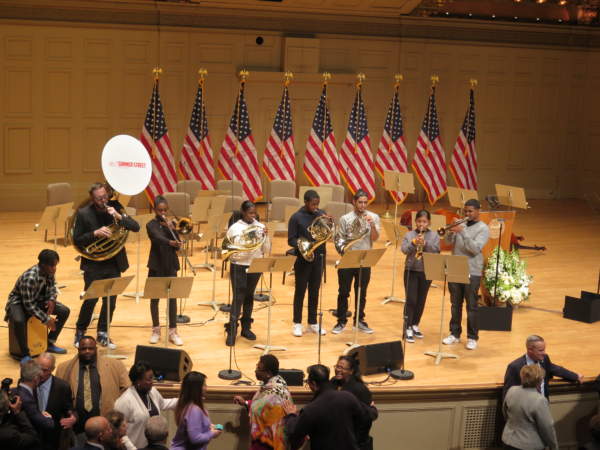
The Summer Street Octet takes the stage.

